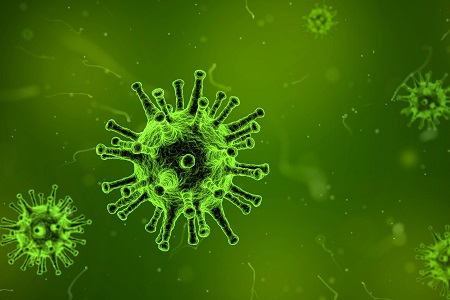How to tell the difference between coronavirus and hay fever
According to Allergy UK, between 10% and 30% of adults, and 40% of children, suffer from hay fever. Also known as allergic rhinitis, the condition can make springtime a nightmare for millions. Bringing runny noses, itchy eyes, and coughs to people across the country.
As we move towards the summer, more and more trees and plants are releasing their pollen into their air, triggering hay fever for millions. This has coincided with the coronavirus pandemic, a disease that also causes a cough, blocked sinuses, and headaches.
As a result, a lot of people may be confusing the symptoms of hay fever for those of COVID-19 causing anxiety.
Main symptoms of hay fever
The symptoms of hay fever are different for different people. While some will only experience itchy eyes and a runny nose, others will find their sinuses become completely blocked, and they suffer headaches, earaches, fatigue, and coughing for weeks on end. The most common symptoms of hay fever are:
- Sneezing and coughing
- A runny or blocked nose
- Itchy, red or watery eyes
- Itchy throat, mouth, nose, and ears
- Loss of smell
- Pain around your temples and forehead
- Headache
- Earache
- Feeling tired
If you have hay fever, you may also notice that your symptoms don’t worsen – or improve – over a long period of time. You’ll also find that they ease up considerably if you take an antihistamine tablet.
In most cases, people suffering from hay fever won’t experience a raised temperature. Sufferers are also likely to find that their symptoms are worse when they spend time in Cambridge’s many parks, or in the countryside that surrounds the city, as this is where the pollen count is at its highest.


Main symptoms of COVID-19
Hay fever and COVID-19 have some overlapping symptoms. As @EDP24 says, “Typically, patients suffering with hay fever will experience symptoms such as a runny or blocked nose, sneezing, sore and watering eyes – but also sometimes a cough. Some of these presenting problems, especially a cough, can also be symptoms of COVID-19.”
The most common symptoms of COVID-19 are:
- Fever
- Cough
- Shortness of breath or difficulty breathing
A number of other patients also report:
- Tiredness
- Aches
- Chills
- Sore throat
- Loss of smell
- Loss of taste
- Headache
- Diarrhoea
- Severe vomiting
As there are a number of common symptoms, it can be difficult to tell for sure if you’re suffering from hay fever or COVID-19. In most cases, people with hay fever will have experienced similar symptoms every spring for a number of years.
If you normally suffer from hay fever in April, May, or June, and your current symptoms are similar to those you have experienced before, there’s a good chance that pollen is at the root of the problem.
However, if you’re unsure whether your symptoms are caused by hay fever or by COVID-19, it’s best to play it safe and self-isolate.
Find out more about Cambridge’s parks and gardens, and the services we offer, by speaking to a friendly member of our team or exploring our site.
